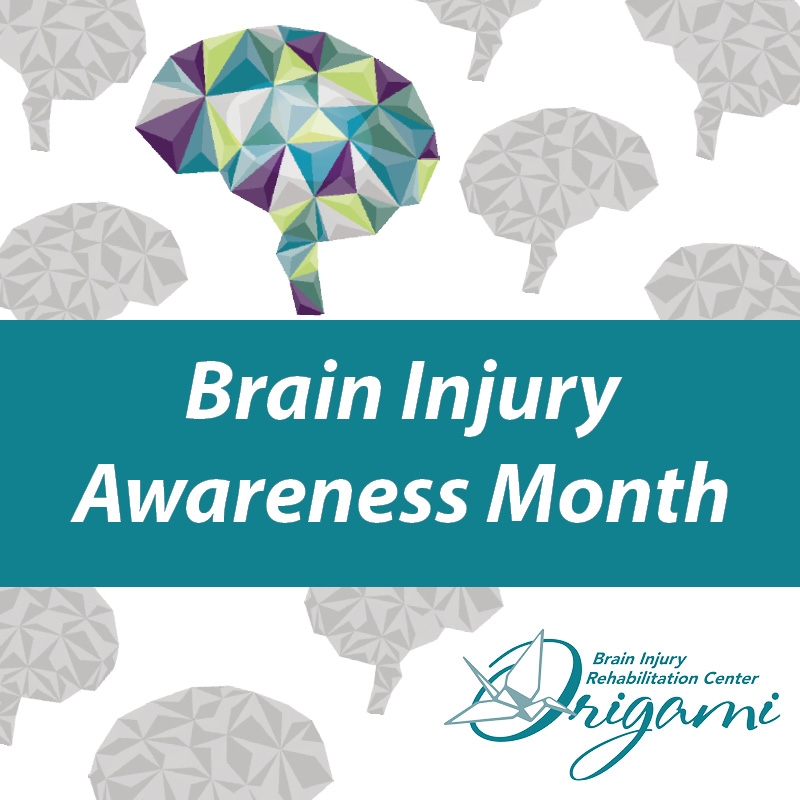Celebrating Brain Injury Awareness Month

Brain injury is often referred to as an “invisible” injury or disability since the effects of the injury are not always visible or immediately evident. However, to anyone who has suffered a brain injury, or to those that care about someone who has, the effects of brain injury are complex and can pervade many aspects of the individual’s life. Brain injury can be difficult to understand, the symptoms can be significant, and the rehabilitation process can be extensive.
We are proud to join brain injury survivors, caregivers, and supporters in celebrating Brain Injury Awareness Month. For decades, the Brain Injury Association of America (BIAA) has led a nationwide public awareness campaign during the month of March to de-stigmatize brain injury through outreach and education.
According to the Brain Injury Association of Michigan (BIAMI), in Michigan alone, 58,500 people sustain a brain injury each year. The truth is that no one plans for a brain injury, but brain injuries can happen to anyone, at any time. Please join us this month as we spread awareness and educate others on the definition of brain injury, its causes, and where to seek proper rehabilitative care.
What is a Brain Injury?
Just as there are no two people alike, no two brain injuries are the same. An acquired brain injury is an injury to the brain that has occurred after birth; these injuries are not a result of heredity, nor are they congenital or degenerative. There are two types of acquired brain injuries, non-traumatic and traumatic.
A non-traumatic brain injury is caused by damage to the brain by internal factors, such as lack of oxygen, exposure to toxins, pressure from a tumor, and so on. A traumatic brain injury is an injury to the brain that is caused by an outside force or impact that is sudden and damaging.
Common Causes of Brain Injury?
- Stroke
- Anoxia/hypoxia (lack of oxygen to the brain)
- Neurotoxic poisoning (ingestion of insecticides, solvents, lead)
- Tumors
- Virus/infection
- Seizures
- Falls
- Motor vehicle accidents
- Struck by an object
- Sports
- Improvised Explosive Device (IED)
- Assault
Brain Injury Recovery:
Following a brain injury, it is imperative to receive the proper rehabilitative care. Brain injury survivors can experience an array of cognitive, physical, and emotional/behavioral challenges. These symptoms can often concur feelings of hopelessness in survivors and caregivers, but there is hope.
The goal of brain injury rehabilitation is to maximize function and encourage survivors to achieve their fullest potential. Origami Brain Injury Rehabilitation Center brings together a team of experts from the following disciplines including physiatry, psychiatry, psychology, physical therapy, occupational therapy, speech-language pathology, recreational therapy, rehabilitation nursing, vocational, and more in order to tailor a care plan to the needs of each survivor. The rehabilitation journey begins with a thorough assessment to identify the individual’s exact needs and goals. At Origami, survivors and their support systems are an essential part of the interdisciplinary team and the rehabilitation journey.
It is important brain injury survivors and caregivers know they are not alone on this journey. If you have a question about brain injury or if you are interested in learning more about brain injury rehabilitation, please visit our website at origamirehab.org or call us at 517-336-6060.
Origami Brain Injury Rehabilitation Center is a 501(c) (3) nonprofit organization. Origami provides comprehensive rehabilitation for adolescents and adults with neurological dysfunction through their residential, outpatient, and community based programs. With their compassionate and innovative services, Origami creates opportunities and transforms lives.


